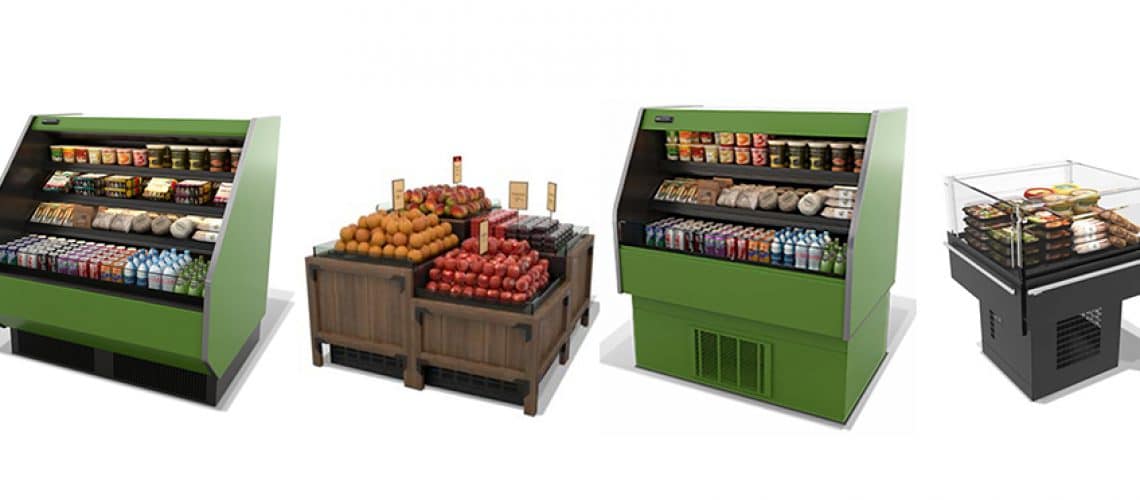Self-Contained Propane (R290) Display Cases Are the Future of Merchandising

Years of research regarding air pollution, how it affects the earth’s atmosphere, and climate change, have pushed people and industry to develop alternative behaviors and strategies to protect against harmful elements that have the potential to further destroy the environment. The refrigeration industry, in an effort to protect against global warming, has put forth initiatives to help eliminate harmful greenhouse gases.
Government regulations continue to put the squeeze on synthetic refrigerant usage resulting in the rebirth of interest in natural refrigerants. HFCs, in particular, have been targeted by regulators as a result of research supporting HFCs as being harmful to the environment. That’s why the switch to a natural refrigerant in the refrigeration industry is so important. Natural refrigerants, such as CO2, propane (R290), and ammonia, are commonly used as natural refrigerant alternatives to their synthetic counterparts.
In the commercial refrigeration industry for food retail applications, the use of propane on self-contained cases is booming. The increase in demand for propane is driven by its sustainability, ease of installation and maintenance, and low-energy usage.
Propane is a non-toxic hydrocarbon and environmentally friendly. Its global warming potential (GWP) is 3, and it has an ozone depletion potential (ODP) of 0. Propane works well as a refrigerant as evidenced by its efficient operating characteristics. Though highly flammable, when used and applied correctly in food retail applications, it is an efficient alternative refrigerant for refrigeration systems and display cases.
Various R290 stand-alone display cases, such as plug-and-play units, require only minor in-store assembly and require no piping of refrigeration lines, supporting ease-of-use and installation among retailers. The simple construction design of R290 self-contained display cases makes maintenance easier. When it comes to concerns about leaks, R290 systems are hermetically sealed to help avoid any such issues.
Propane-based refrigeration systems are simple and more reliable. They offer high-energy efficiency due to their excellent thermodynamic properties. Since they use less energy and less refrigerant, the use of R290 with self-contained, display cases can provide 20-50% energy savings to retailers.
The use of propane merchandisers has been widely adopted in Europe and other countries for many years now. In the US, its application is slowly gaining ground with the stand-alone merchandisers, such as mobile island display cases, open, multi-deck merchandisers, and self-service, single-deck, refrigerated display cases, serving various temperature applications, such as bakery, deli, produce, meal kits and grab-and-go. The use of propane-based display cases in food retail stores provides retailers with energy-efficient, reliable, and practical merchandisers that are built to last, unlike conventional rack systems. Not just that, but since propane is a sustainable alternative natural refrigerant and essentially friendly to the environment, it is exempted from looming government refrigeration regulations that aim to cut and phase out harmful refrigerants, such as HFCs. With self-contained, propane display cases, retailers can be confident they will avoid system changes and retrofits since these propane merchandisers are built to comply with upcoming regulations.
The future-focused approach of self-contained, propane display cases is just one of many initiatives in the food retail industry to help protect the planet’s future. Transitioning to low-GWP refrigerants is just the start of our journey towards a fully sustainable industry—a road that may be long, but will certainly be worth it.